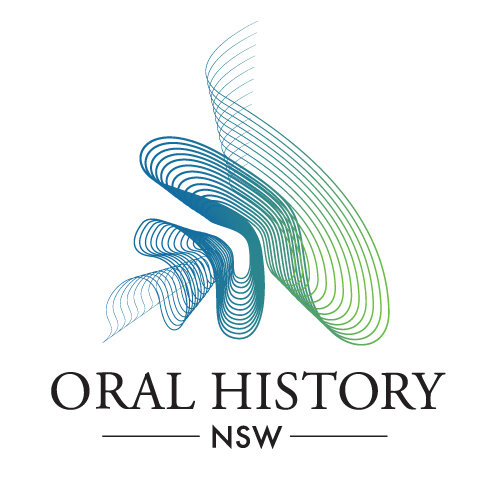The 2019 Biennial Conference of Oral History Australia was held between 10-13 October on Yuggera Country at the State Library of Queensland, with a theme of ‘Intimate Stores, Challenging Histories’. I was fortunate enough to receive a bursary funded by the NSW OHA to attend the conference, presenting my work on proper-way research, that is research using ethical research methods and methodologies in a remote Aboriginal community. The conference ran in 3 strands across 2 days; I was privileged to attend several thought-provoking presentations interrogating intimate stories and challenging histories.
The opening plenary presented by Katrina Srigley set the tone by speaking about relational storytelling and story listening; an unlearning and learning journey with Nipissing First Nation of the shorelines of Lake Ontario. Perspectives about true listening, ‘listening with the heart’ and interpretation permeated the conference as presenters and attendees considered the means in which oral history can speak back and assume its rightful place in mainstream history.
Awareness of the ongoing attempts at colonial erasure of Indigenous experiences and perceptions in history held a prominent place in presentations, provoking consideration of the impact of silencing and silences in oral historiography. For example Skye Kirchauff asked us to consider the perceived silence about Aboriginal people in public and private spaces of her hometown in South Australia. The notion of silencing also presents in the realm of memorialisation; specifically in the ways frontier violence and Aboriginal massacres in Australia became part of our colonial forgetting. Through discussion based on two public monuments in the East Kimberly Cameo Dalley, Ashely Barnwell and Sana Nakata explored the ways contemporary Aboriginal and non-Aboriginal communities think about each other in terms of how wars are commemorated.
Sites of attempted silencing in history reach into the disability narrative and Penny Harrison suggests oral history has a significant role to play in developing a more intimate and inclusive understanding of disability, challenging the established narrative of marginalisation. Diasporic stories from Cambodia, presented by Naomi Frost, reminds us that in the transmission of family narratives silence may not be forgetting, but rather deeply nuanced by personal, temporal and spatial distances.
Several presentations focussed on the ethics of research in making Aboriginal history, be it in Aboriginal Art (McHugh, Neale and McLean), proper-way research in remote communities (Rhonda Povey) Aboriginal stories about ‘The Reserve’ in Broome (Elaine Rabbitt), or Gaja Kerry Charlton yarning about life on Benarrawa. The plenary ‘Indigenous Oral History: challenges and opportunities’ was a fitting close to the conference. Panel members Lorina Barker, Gaja Kerry Charlton, Sadie Heckenberg and Katrina Srigley raised questions such as how do we navigate the inquiry space so as to ensure custodianship of stories? How do we as historians decolonise ourselves and historiography? And how do we overcome the invisibility of the obvious? What does reciprocity truly mean? Katrina Srigley asked “How do we do this with love?” Speaking from the standpoint of a Yuggera woman, Gaja Kerry Charlton reminded the audience the challenges to opportunity involve “precariously stepping over the edge into our world”.
Many thanks to all those involved in organising the conference. I know I don’t speak only for myself in saying many wonderful stories were shared, both in presentations and amongst the conference attendees!
-Rhonda Povey









